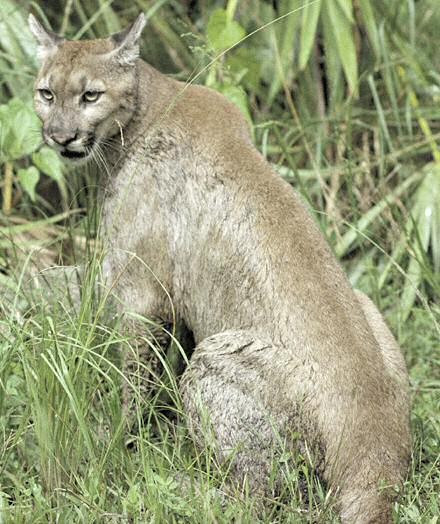Cougars Making Comeback Across Midwest, Say Researchers

Cougars or American mountain lions are coming back to the US after 100 years, researchers from the University of Minnesota and the Southern Illinois University have found.
Even though the return of cougars is overwhelming for researchers and wildlife professionals, the main question is: how can humans live alongside the predators?
Nearly hundread years ago, the cougars had moved away from the US because of lack of prey and hunting, but now researchers have found stunning evidence about the return of the wildcats.
"The cougar population declined dramatically from 1900, due to both hunting, and a lack of prey, leaving the remaining population isolated to the American west," said Michelle LaRue, a Ph D student at the University of Minnesota, in a statement. "Here we present the hard evidence that the western population has spread, with cougar populations re-establishing across the Midwest."
Researchers found this when they were studying cougar sightings to know where cougar populations were being re-established.
During the study, researchers analysed data about the confirmed sightings of cougars and found that animals were moving towards the Midwest.
Apart from confirmed sightings, the team also found evidence such as carcasses, tracks, photos, video, DNA and cases of attacks on livestock across 14 states and provinces of North America. This clearly showed that the cougars have returned to the US.
The study revealed that nearly 170 cougars were seen in the Midwest between 1990 and 2008. Researchers claim that the number of confirmations has been steadily increasing since 2008.
Researchers also found that nearly 62 percent of confirmed sightings actually took place within about 10 miles of habitat that would be considered suitable for cougar populations. This clearly shows that cougars are re establishing across the Midwest.
"This evidence helps to confirm that cougars are re-colonizing their historical range and reveals that sightings have increased over the past two decades," LaRue said.
"The question now is how the public will respond after living without large carnivores for a century. We believe public awareness campaigns and conservation strategies are required across these states, such as the mountain lion response plans already in place in Nebraska and Missouri," he concluded.
© Copyright IBTimes 2025. All rights reserved.



















